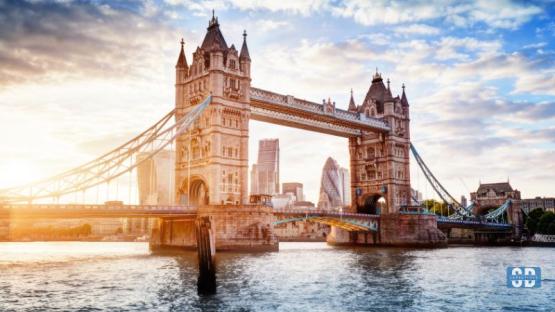A Practical Guide for Americans Relocating to London
Relocating from the United States to London is a life-changing decision that involves more than just packing boxes. Whether you’re seeking career opportunities, cultural experiences, or a fresh start, moving abroad requires thoughtful planning and research. This guide is tailored specifically for Americans making the leap across the Atlantic, ensuring your move is as stress-free as possible.
People Also Ask (PAA):
- How much money do I need to move to London from the US?
- Can a US citizen live permanently in London?
- Is healthcare free for Americans in the UK?
- What visa do I need to move to London from the US?
Understanding UK Visa Options for Americans
Before boarding a flight to London, the first priority is your visa. The UK offers several types of visas depending on your reason for relocation:
Common Visa Types:
- Skilled Worker Visa â Ideal for professionals with a UK-based job offer.
- Student Visa â For those enrolled in a UK university or college.
- Global Talent Visa â Suitable for highly skilled individuals in tech, science, or the arts.
- Spouse or Family Visa â For those joining a partner or family member who is a UK citizen or resident.
You can review specific visa criteria and application requirements at the UK Government Website .
Cost of Living: Budgeting for Your New Life in London
London is often ranked among the world’s most expensive cities. As an American, adjusting to the cost of living can be challenging without a solid financial plan.
Key Expenses:
- Housing: Rent ranges from £1,500â£3,000 per month depending on location.
- Transportation: A monthly Travelcard (Zones 1â2) costs about £156.
- Groceries: Average of £250â£400/month for a single person.
- Healthcare: While the NHS offers free services, you may pay for a private GP or health insurance as a non-resident initially.
Using budgeting apps and cost-comparison sites can help track expenses in real time.
Navigating Healthcare as a US Expat in the UK
One of the biggest concerns for Americans is transitioning from the U.S. healthcare system to the UK’s National Health Service (NHS). Once you become a resident, you’re typically eligible to access NHS services. However, when applying for your visa, you’ll need to pay the Immigration Health Surcharge (IHS), which grants access to NHS care.
Healthcare Tips:
- Register with a local GP (General Practitioner) as soon as you settle.
- Consider supplemental private health insurance during the transition period.
- Keep U.S. health insurance for the first few months in case of emergency.
Finding Accommodation: Where Americans Prefer to Live
Popular neighborhoods for expats include:
- Kensington and Chelsea â Upscale and safe with a central location.
- Clapham â Lively community and great for young professionals.
- Richmond â Suburban, green, and family-friendly.
- Islington â Offers a balance of trendy and traditional.
Check UK-specific rental platforms such as Rightmove or Zoopla and avoid scams by working with certified agents.
Cultural Differences You Should Expect
While the UK and US share a language, cultural nuances abound. Americans often experience subtle shocks such as:
- British politeness and indirectness in conversation
- Different humor style (dry and sarcastic)
- Metric system for measurements and temperatures
- Electrical plug difference â UK uses Type G plugs
Being open to these differences can help ease your cultural adjustment.
Banking, Mobile, and Daily Life Logistics
Setting Up Essentials:
- Bank Account: Monzo and Revolut offer expat-friendly digital banking.
- Mobile Plan: Giffgaff and EE are popular networks; bring an unlocked phone.
- Public Transport: Get an Oyster Card or use contactless debit cards.
Having proof of address (such as a lease or utility bill) is often needed to set up these services, so prioritize finding accommodation early.
Tips for a Stress-Free Transition
- Plan Your Finances: Save 3â6 months of living expenses.
- Join Expat Communities: Facebook groups and Meetup offer local support.
- Travel Light: Shipping internationally can be expensiveâconsider selling and rebuying.
- Consult a Tax Advisor: Understand your US tax obligations while living abroad.
Tax Planning and Filing for Americans Living in the UK
Even after moving to London, Americans must continue to file annual U.S. tax returns and potentially UK taxes as well. Understanding dual-tax obligations is key.
Filing Considerations:
- File IRS Form 1040 yearly, regardless of UK income.
- Claim the Foreign Earned Income Exclusion (FEIE) or Foreign Tax Credit to avoid double taxation.
- Report Foreign Bank Accounts (FBAR) if they exceed the threshold.
Engaging a tax advisor with expertise in expat tax law will help you stay compliant and maximize your deductions.
Final Thoughts: Moving to London from the US with Confidence
Starting a new chapter in London as an American can be exhilarating and overwhelming. With the right preparationâvisas, finances, housing, and cultural awarenessâyou’ll be positioned to make a smooth transition. Use this guide to map your journey, anticipate challenges, and fully embrace everything life in London has to offer.







